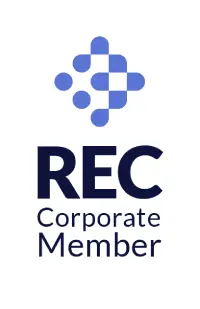The US healthcare system is on the brink of an unprecedented shortage of nursing professionals in 2024. The poor policy move by the US State Department to freeze new visas for international nurses has not only had a ripple effect but also made the matter worse. In this case, healthcare facilities are experiencing increased pressure. In addition, the risk management issues are newly compounded across healthcare organizations.
Particularly, in today’s date , these threads of shortage are evidently intertwined among the healthcare providers seeking available staffing positions. The ripples do not just affect clinical outcomes ,but now it has started to tear the financial record-keeping of the healthcare facilities as well. Risk managers of healthcare, medical professionals, and insurance groups alike are becoming burdened with the aftermath as increased costs and litigation serve to make the matter more complex.
The Compounding Effects of the 2024 Nursing Shortage
The United States has been facing a shortage of nurses for ages. Although the situation has worsened considerably within the last few years because of the pandemic, there are still not enough nurses to go around. Early retirement and re-entry into other careers that are less demanding have led to a mass exodus of many nurses due to these reasons. This made the healthcare sector very reliant on international nurses to fill critical positions.
However, the most recent visa freeze has worsened the problem, with over 10,000 international nurses, whose arrival would have bolstered the U.S. healthcare workforce, being left dangling in mid-air. Thus, the backlog puts healthcare providers under pressure to maintain optimum staffing levels and is likely to stretch the wait time for patients, resulting in reduced access to specialist care and propagating additional stress throughout the existing workforce.
Additional Read: Nursing Recruitment Still Declining in the USA
Visa Freeze: Challenges for International Nursing Talent
International nurses make up about 16% of the US nursing workforce, and this group has been so integral in filling in the gaps in health care, particularly in underrepresented areas as well as in specialized fields. The US State Department recently ended new visa releases for these individuals, which proved to be a bottleneck for the thousands of qualified professionals who have been left hanging. The applicants are limited only to those who had filed for a green card before December 2021 and, therefore, would be qualified to attend a visa interview.
The timing is also of concern, given the rapidly aging population of the United States. By 2045, nearly 30% of the population in the U.S. will be at least 65 years old; this demographic shift will increase healthcare utilization dramatically. Added to the current nurse shortage, this demographic change threatens the long-term delivery of efficient, timely care in the healthcare system.
One of the other impacts of the nursing shortage and the freezing of visas is increased costs in terms of insurance from healthcare providers. Social inflation, with the ever-changing nature of society’s attitudes and litigation, has been rapidly propelling the cost of claims when it comes to insurance. As observed, the new cost of insurance is too unbearable for hospitals and clinics at present with their very high operating and financial needs, where shortages in staff are a highly pending issue.
Immigration and Nursing: A Critical Interconnection
No one can match the link between immigration and the U.S. healthcare system. Of course, everybody knows that international nurses not only fill slots within the domestic nursing market but also create a pool of specialized care in critical areas like oncology, intensive care, or long-term care. All of this is denied to health providers with today’s visa freeze.
The shortage of international nurses carries the consequences of:
- Longer wait times for patients seeking care
- Decreased access to special healthcare
- Increased staff burnout and stress
- Increased medical error
- Decreased patient satisfaction
Not being able to recruit foreign nurses places a great burden on hospitals, with heightened risks and liability. All these problems trickle down to the patients, who end up waiting longer, getting lower-quality care, and facing greater risks due to exhausted staff and broken communication channels.
Additional Read: Revolutionising Healthcare: The Virtual Nurse Pilot Program in the USA
Combating the Nursing Shortage: 5 Key Strategies
The only apparent solution to manage the nursing shortage and any other hurdle arising from it would be through proactive risk management and strategic planning. There are five ways through which health organizations can take steps to minimize the impacts:
- Use of Insurance Carrier Resources: Many insurance carriers offer risk management services that include training and educational materials designed to reduce medical errors and claims. Thus, if such resources are available, they tend to maintain a safety element for patients while reducing any liability.
- Advocating for Legislative Changes: The introduction of visas marks one of the essential steps to get rid of visa backlogs.
- Improve Staff Communication and Teamwork: Holding frequent meetings to discuss the strategies of risk management and collect feedback from staff about the quality improvement of care.
- Membership in Medical and Nursing Societies: Professional organizations provide sources of information and access to advocacy channels. This would benefit healthcare providers by having updates on solutions to the nursing shortage.
- Emphasis on Continuing Education: This may be helpful in reducing medical errors and keeping the standard of care high, even when things get tough. Focusing on education for staff in leadership and patient care will highly improve the standards of medical care.
Implementing such approaches may also assist healthcare professionals in coping with short-term problems resulting from the nursing shortage. However, the long-term can be achieved only by a transition from reactive to proactive planning in light of changes in the healthcare system.
Long-Term Resilience in Healthcare
Keeping abreast of the nursing workforce and insurance-related updates will ensure that healthcare providers are well-informed of future challenges. Proactive planning, clear communication, and continuing education will significantly help minimize the level of disruption, reduce liability, and provide good quality care even in the most challenging staffing situations.
Dynamic Health Staff specializes in helping healthcare professionals acquire rewarding international careers. We can walk nurses through the recruitment process and help them work through visa-related obstacles if they are seeking new opportunities. If you are interested, you can contact us today at enquiry@dynamichealthstaff.com or +919810017608 to learn more about how we can help you achieve your career goals and take advantage of opportunities within the USA’s healthcare system.
Reach out to us today: Dynamic Health Staff!






